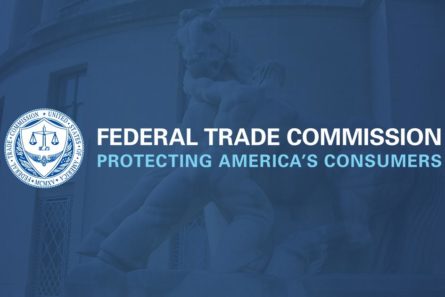Partisan Enforcement and Increasing Uncertainty at the FTC: Commissioner Wilson’s Departure and Recent FTC Administrative Actions
Elyse Dorsey

The Federal Trade Commission has amped up its administrative activity of late, portending changes in enforcement to come. But more than that, the FTC has acted on an increasingly partisan basis in recent months, as it attempts to dramatically overhaul enforcement of the federal antitrust laws. A divided Commission not only issued a Policy Statement charting a novel course for enforcing its Section 5 authority, but it further issued its first proposed rulemaking under its (purported) “unfair methods of competition” (UMC) authority in decades—only its second such rulemaking ever. Democratic FTC leadership has hinted at substantive changes to merger filing requirements. And while the FTC temporarily stayed its administrative litigation to block the Meta/Within acquisition following its federal court loss, the FTC explicitly left open the option to proceed internally. This last piece, alone, would fly in the face of longstanding Commission practice, which is to refrain from giving itself “two bites at the apple” and to avoid implementing significantly different processes on mergers with the happenstance of falling to FTC rather than DOJ review. While the Commission ultimately decided not to proceed internally, that it seriously considered doing so is itself notable, as the Commission has not done so for decades.
Perhaps most strikingly, Commissioner Wilson—the sole remaining Republican commissioner— recently announced her intent to depart the FTC, citing “concerns about the honesty and integrity of Ms. Khan and her senior FTC leadership,” “abuses of government power,” and “continuing lawlessness.” Commissioner Wilson’s unprecedented rebuke of FTC leadership arrives at a critical time for the agency. The Commission’s recent steps mark significant departures from decades of practice relating to very basic FTC powers and actions—as well as a history of largely bipartisan enforcement—and swing wide the door to uncertainty for competitors, for employees, and for consumers for years to come.
The Biden FTC presaged its goals to overturn modern antitrust enforcement early on, and about halfway into its tenure, it appears to be taking steps toward those goals. Early efforts included withdrawing policy statements with which the Biden Commission did not agree; for instance, on a partisan basis the Commission quickly withdrew the 2015 Section 5 Policy Statement and repudiated the 2020 Vertical Merger Guidelines. Now, its efforts appear to target a more proactive agenda—introducing new guidelines, beginning rulemakings, and engaging in other policy activities to mold a novel enforcement approach.
The FTC’s 2022 Section 5 Statement is notable, and it may be the proverbial canary in the FTC coalmine for several reasons. To begin, this Statement breaks starkly with previous Commission statements and longstanding practice. The withdrawn 2015 Statement was issued by the Obama FTC on a bipartisan basis; but the 2022 Statement cannot say the same. Moreover, the FTC had, for decades, aligned its Section 5 actions closely with other antitrust laws, particularly the Sherman and Clayton Acts. The 2022 Statement sets all that aside. Indeed, in its opening paragraph, the Statement explains that it “supersedes all prior FTC policy statements and advisory guidance on the scope and meaning of unfair methods of competition”—leaving no question but that this Statement marks a new dawn for Section 5 enforcement.
Relatedly, the Statement seems to walk away from the Commission’s longstanding commitment to the consumer welfare standard. For decades, the FTC has—consistent with Supreme Court instruction—placed consumer welfare first and foremost in its competition analysis. Yet nowhere does the Statement explicitly reference the consumer welfare standard. To the contrary, in several places the Statement recognizes that the FTC will consider multiple categories of harms cognizable under Section 5. The Statement condemns, for instance, conduct that tends to “negatively affect competitive conditions—whether by affecting consumers, workers, or other market participants.” These are three very distinct buckets of potentially affected stakeholders, and their interests might (often) be affected in entirely different directions by precisely the same conduct. This inherent contradiction, in large part, catalyzed the adoption of the consumer welfare standard in the first instance, fine-tuning and rationalizing antitrust enforcement. Abandoning this standard is likely to result in an “I know it when I see it” approach to enforcement, as Commissioner Wilson recognized. Not to mention that condemning negative effects on “other market participants” sounds akin to “protecting competitors, not consumers,” to turn an axiomatic antitrust principle on its head. That the FTC is willing to begin by throwing out fundamental principles of competition enforcement first in the Section 5 realm does not rule out—to the contrary, it might presage—expansion beyond these amorphous and apparently expanding boundaries.
As a policy statement, this Section 5 guidance carries no immediate force or effect. (In fact, this Commission demonstrated the potentially ephemeral nature of such statements.) Other FTC efforts, like the proposed rule to ban noncompete agreements broadly across the U.S. economy, would carry more imminent implications. The FTC will likely face a tough road ahead in federal courts to defend such actions. The courts seem more willing of late to seriously evaluate statutory grants of authority and to scrutinize whether the FTC’s actions align with those authorities, as recent cases evidence.
But the threat of being subsequently overturned (likely years later) by the courts might not stop the FTC from acting now and, importantly, from obtaining consents in the interim. This FTC seems willing to cite to favorable consents as, essentially, precedential examples. The more such consents they obtain, the stronger their alleged foundation for follow-on challenges. Despite that consents do not constitute binding authority in court, not all potential targets of FTC investigations have the resources to withstand protracted battles to protect their rights. Indeed, newer entrants, smaller competitors, and others with more modest legal department budgets are likely to be most susceptible.
This seems to be a striking theme resonating across the FTC’s current agenda: it threatens and imposes costs not only upon the “big” companies that bear the brunt of the agency’s ire, but also upon smaller players that are far less equipped to absorb such costs. Among other concerns, the importance of clarity and consistency in enforcement cannot be overstated. It is important not only so that businesses know how to act (or not to act)—but also because that knowledge informs their fundamental ability (and willingness) to compete, which in turn intimately affects consumers, who are the beneficiaries of robust competition. When the rules of the road are clear and legal risks can be mitigated, more risks can be taken in terms of experimentation, innovation, and R&D—the drivers of economic growth. But increasing uncertainty by upending those rules, however well-intentioned, affects smaller and newer players just as much as (if not more than) larger players. Consider that entire ecosystems have evolved around platforms, where smaller developers and others today can rely on the platform for certain services (aimed at, say, privacy and security, etc.) without the need to build-out each and every specification themselves; but imposing liability in novel ways might fundamentally alter these interactions and impose additional costs on smaller players as the ecosystem is reshaped pursuant to a partisan Commission’s goals.
The FTC’s recent steps to overhaul antitrust enforcement are creating significant uncertainty that might persist for years to come. Not only are recent FTC actions opening the door to numerous (potentially meritorious) legal challenges, but a new administration might well seek to reverse course, or chart yet another 90-degree departure. The Commission is about to be left entirely in hands of a single political party, in tension with its bipartisan construction. Rather than enhancing or unleashing competition, these increasingly partisan actions might unintentionally stymie competitive behavior as uncertainty rises and liability risks increase—and both small businesses and consumers writ large might be left in lurch.

The Federalist Society and Regulatory Transparency Project take no position on particular legal or public policy matters. All expressions of opinion are those of the author(s). To join the debate, please email us at [email protected].




